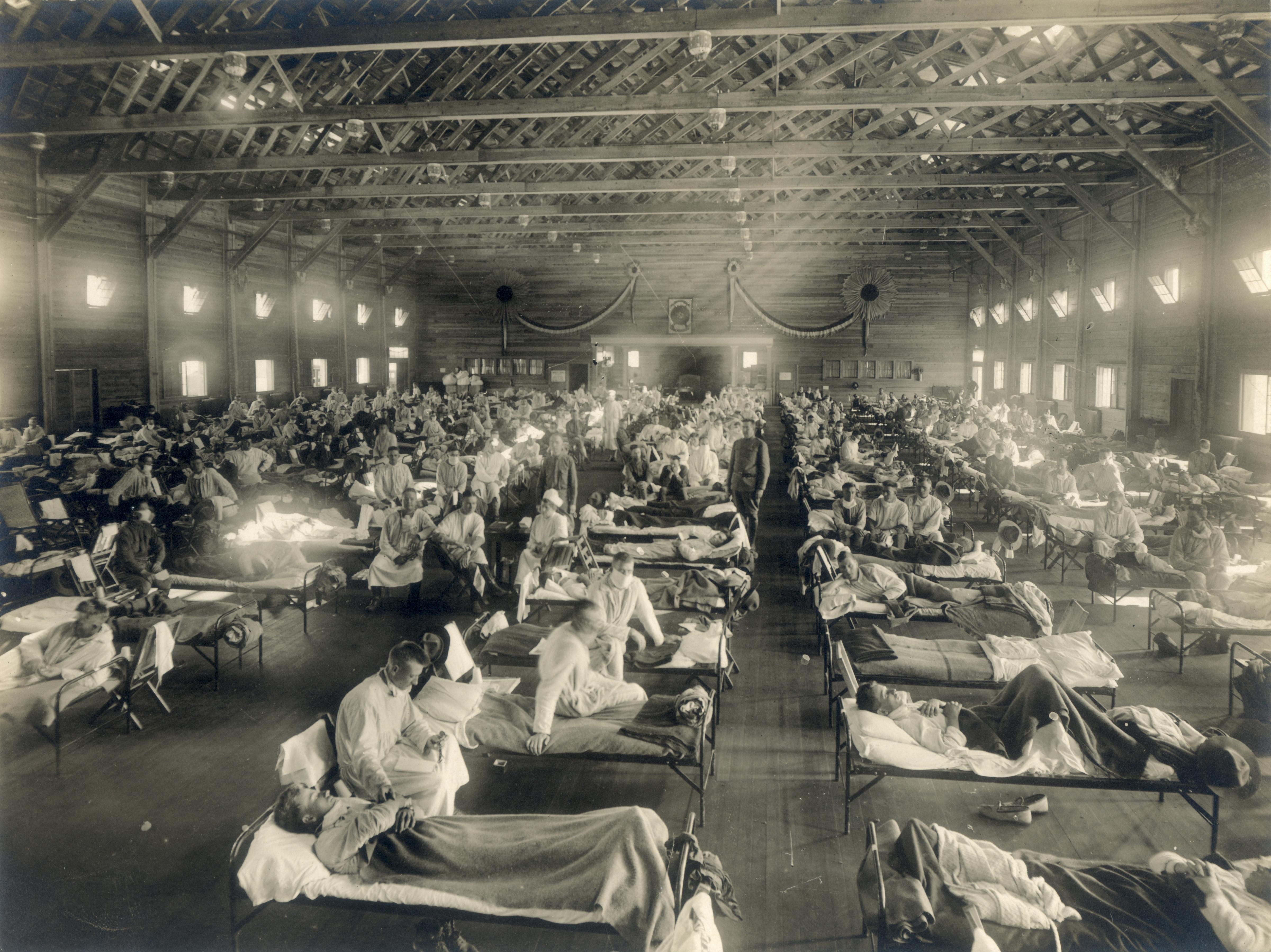
Spanish flu
The 1918–1920 flu pandemic, also known as the Great Influenza epidemic or by the common misnomer Spanish flu, was an exceptionally deadly global influenza pandemic caused by the H1N1 influenza A virus. The earliest documented case was March 1918 in the state of Kansas in the United States, with further cases recorded in France, Germany and the United Kingdom in April. Two years later, nearly a third of the global population, or an estimated 500 million people, had been infected in four successive waves. Estimates of deaths range from 17 million to 50 million,[6] and possibly as high as 100 million, making it one of the deadliest pandemics in history.
"Great Influenza" redirects here. For the book, see The Great Influenza.
The pandemic broke out near the end of World War I, when wartime censors in the belligerent countries suppressed bad news to maintain morale, but newspapers freely reported the outbreak in neutral Spain, creating a false impression of Spain as the epicenter and leading to the "Spanish flu" misnomer.[7] Limited historical epidemiological data make the pandemic's geographic origin indeterminate, with competing hypotheses on the initial spread.[2]
Most influenza outbreaks disproportionately kill the young and old, with a higher survival rate in-between, but this pandemic had unusually high mortality for young adults.[8] Scientists offer several explanations for the high mortality, including a six-year climate anomaly affecting migration of disease vectors with increased likelihood of spread through bodies of water.[9] The virus was particularly deadly because it triggered a cytokine storm, ravaging the stronger immune system of young adults,[10] although the viral infection was apparently no more aggressive than previous influenza strains.[11][12] However, the claim that young adults had a high mortality during the pandemic has been contested.[13] Malnourishment, overcrowded medical camps and hospitals, and poor hygiene, exacerbated by the war, promoted bacterial superinfection, killing most of the victims after a typically prolonged death bed.[14][15]
The 1918 Spanish flu was the first of three flu pandemics caused by H1N1 influenza A virus; the most recent one was the 2009 swine flu pandemic.[16][17] The 1977 Russian flu was also caused by H1N1 virus.[16][18]
Effects
World War I
Academic Andrew Price-Smith has made the argument that the virus helped tip the balance of power in the latter days of the war towards the Allied cause. He provides data that the viral waves hit the Central Powers before the Allied powers and that both morbidity and mortality in Germany and Austria were considerably higher than in Britain and France.[183] A 2006 Lancet study corroborates higher excess mortality rates in Germany (0.76%) and Austria (1.61%) compared to Britain (0.34%) and France (0.75%).[249]
Kenneth Kahn at Oxford University Computing Services writes that "Many researchers have suggested that the conditions of the war significantly aided the spread of the disease. And others have argued that the course of the war (and subsequent peace treaty) was influenced by the pandemic." Kahn has developed a model that can be used on home computers to test these theories.[307]